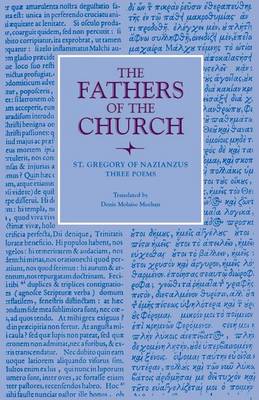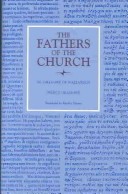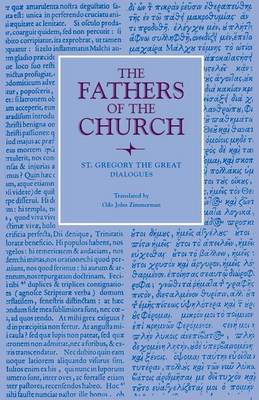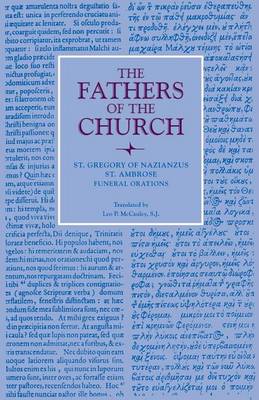Fathers of the Church
4 total works
Gregory of Nazianzus was born into an aristocratic Christian family in Cappadocia during the reign of the emperor Constantine. He received a superb education in Athens and entered into the monastic life with his classmate and friend Basil (who would become known as "Basil the Great"). After reluctantly submitting to ordination to the priesthood in 362, he subsequently became the Bishop of Sasima. Upon the accession of Theodosius I to the imperial throne in 379 and the convening of the Council of Constantinople in 381, Gregory was summoned to the eastern imperial capital to serve as bishop of that city and as presider over the council. The unfortunate incidents that occurred in Constantinople at that time impelled Gregory to retire to his boyhood home and to devote himself to writing. The autobiographical poems in this volume relate the events of his life through his own unique perspective.
This translation makes available 19 orations by the 4th-century Cappadocian Father Gregory of Nazianzus. These homilies span all the phases of Gregory's ecclesiastical career, beginning with his service as a parish priest assisting his father, the elder Gregory, in his hometown of Nazianzus in the early 360s, to his stormy tenure as bishop of Constantinople from 379 to 381, his subsequent return to Nazianzus and role as interim caretaker of his home church (382-83). Composed in a variety of rhetorical formats such as the lalia and encomium, the sermons treat topics that range from the purely theological to the deeply personal. Gregory has been known primarily for his contributions as a theologian, indifferent to the social and political concerns that consumed his friend Basil, due in large measure to the interests and prejudices of the 19-century editors who excluded the sermons translated here from the ""Select Library of Nicene and Post-Nicene Fathers of the Church"". This translation should help the reader appreciate just how deeply Gregory was engaged in the social and political issues of his day. Exemplifying the perfect synthesis of classical and Christian ""paideia"", these homilies should be required reading for anyone interested in late antiquity. The introduction and notes accompanying the translation are designed to assist both the general reader and the specialist as they seek to navigate the complex environment in which Gregory lived and worked.
Rich in captivating narratives, the four books of Dialogues of Gregory the Great (Pope, 590-604) present hagiographical accounts of the lives of Italian saints whose holiness remained intact during tumultuous times. Of these, the most famous is the monastic founder Benedict, whose life story occupies all of Book Two. These stories, along with Book Four's mixture of expository and narrative assurances of the immortality of the soul, must have been encouraging to its contemporary Italian readers, especially since Gregory wrote these books at a time when Italy had been ravaged by barbarian invasions, floods, plagues, and famines.
The volume presents the most generally admired ancient Christian funeral orations-four from the Greek (those of St. Gregory Nazianzen), four from the Latin (those of St. Ambrose of Milan). From the Bishop of Nazianzen, we have words spoken in honor of three kinsmen, his father, a brother, and a sister, and of the great St. Basil, Bishop of Caesarea. Two of the orations from the lips of St. Ambrose are likewise for a kinsman, his brother Satyrus, while the other two are for wearers of the purple, the youthful Valentinian II and the emporor Theodosius.



